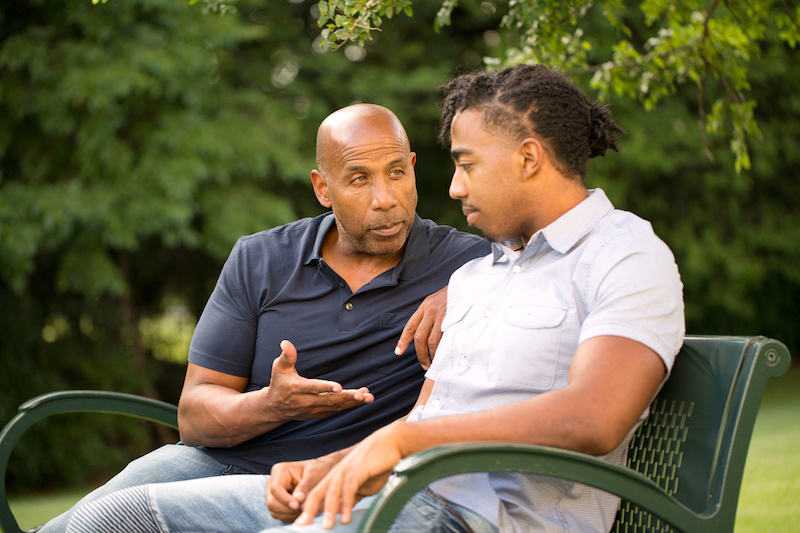Pandemic Survival Guide For the Emotionally Neglected

Let’s start with a few questions about your own personal experience with social distancing during the pandemic.
The Questions
- Are you having strong feelings that you feel alone with? Are you wondering what you’re supposed to do with all the feelings you’re having?
- Are you feeling hemmed-in, hurt, harmed, helpless, irritated, annoyed, or otherwise overly affected by the people you are sheltering in place with?
- Is spending more time with your partner or spouse raising some problems and/or questions about the relationship?
- Is all the home-time with your kids magnifying behavior problems, making you doubt your parenting, or leaving you feeling at sea about what to do?
- Are you concerned about your parents but avoiding calling them?
- Do you wish you were able to speak up and state your feelings and needs but find you don’t know what to do or how to do it?
The Answers
Read my CEN Pandemic Survival Guide by clicking on the link or the picture below. I hope it offers you ideas, solace, helpful advice, and care.
Webb_CEN_Pandemic_Survival_Guide
Childhood Emotional Neglect is often invisible and unmemorable so it can be difficult to know if you have it. To find out, Take the Emotional Neglect Test. It’s free.
Learn about Childhood Emotional Neglect, how it happens in the life of a child, and how to heal it in the books Running On Empty and Running On Empty No More.
Preview:
Whatever negative events you may have imagined happening in your future, the coronavirus pandemic was probably not one of them.
It seems that the current state of our world, replete as it is with quarantines, stay-at-home orders, closed businesses, virtual education, lost projects, and social distancing leaves probably about 90% or more people feeling alone, uncertain and lost.
As a psychologist who specializes in the effects of Childhood Emotional Neglect or CEN on adults,
I can tell you that scores of people had already brought a big dose of those three feelings forward from their childhoods and have been quietly coping with them for years.
And now, in this current situation, we are handed an extra measure of “alone, uncertain, and lost,” plus a whole lot more.
If you grew up in a family that ignored the emotions of its members (CEN); if you are stuck at home, feeling stressed, lost, confused, terrified, alone, helpless or hopeless, sad, worried, or angry, I want you to know that there is a way to turn this around for yourself.
The Importance of Control in an Uncontrollable Time
Much of this situation is truly out of your control, but not all of it. It is possible to reframe your current situation into an oppor- tunity. An opportunity to do things you were never able to do because of time, stress, and all the life demands that you’ve always been juggling.
I believe you can survive the challenges of this pandemic. But I want you to do better than survive. I want you to find yourself growing in surprising ways during the pandemic. I want you to thrive.
So I have put together this guide to help you cope and grow in the various areas of your life that are being challenged the most by the current state of our world. In this Guide you will find understanding, awareness, help, and support, as well as concrete steps you can take to care for yourself during COVID-19.
5 Challenges of Valentine’s Day and How to Overcome Them

Is Valentine’s Day just one big commercial created by the card companies? Actually, no, it is not. It’s a holiday that is rooted in ancient history. Valentine’s Day is thought to originate from the ancient Roman festival of Lupercalia that was held each year in the middle of February. It was a happy occasion which, in addition to celebrating spring, also included fertility rites and a lottery that paired men and women together based on the drawing of names.
Sounds fun, right?
Society has changed since ancient times, and Valentine’s Day has transitioned through the centuries into something quite different. It’s supposed to be a happy celebration of love and, for many, it is. But it also poses unique challenges to people married and single, dating or not dating, wishing for a relationship, or happy alone.
Let’s start by taking a look at the various challenges of Valentine’s Day. You may identify one, several, or even all as applying to you. Either way, no worries. There are answers!
5 Ways You May Be Challenged By Valentine’s Day
- You are uncomfortable with emotions. Valentine’s Day is, without a doubt, an emotional holiday. With its emphasis on love and relationships, it practically commands you to have, share, and express feelings with your significant other. But not everyone is comfortable with emotions. If you grew up in an emotionally inexpressive, emotionally repressed, or emotionally neglectful family, you may be particularly uncomfortable with an emotion-based holiday like this.
- You are set up with high expectations. This is how V Day is like every other holiday. As a designated day to celebrate your relationship, V Day sets you up with high expectations to feel loved, cared for, and valued by your partner. Since these feelings cannot be summoned on demand, this can be a setup for disappointment.
- You are in a struggling relationship or are looking for a relationship. As a holiday that’s focused exclusively on couples, Valentine’s Day makes you hyper-aware of your relationship status. That’s why for every person who’s looking forward to Valentine’s as a way to celebrate their love, there are several who are dreading the holiday because of the way it makes them feel. You may wish you were in a relationship, or you may be in a struggling marriage. How do you celebrate a non-existent or unhappy relationship?
- You are content being single. Being in a couple is not a requirement for happiness. Many people purposely and comfortably choose not to be in a relationship. If this is you, you may find yourself receiving sympathy you don’t need or want as a result of this holiday. That can be very uncomfortable.
- The holiday brings up grief over past or current losses. Valentine’s Day has a way of reminding you of everyone you have loved. If you have lost a past loved one via death, break-up, or divorce, or are in the process of transition in your life, you may experience some fresh grief on this day.
You Are Not Alone
All of these challenges can affect anyone, of course. But they are especially problematic for you if you did not receive enough emotional validation and emotional connection from your parents during your childhood or, in other words, if you have Childhood Emotional Neglect (CEN).
If you struggle with any or all of these challenges this Valentine’s Day, I want to first tell you sincerely that you are not alone!
And it is surely not a bad thing to be challenged. Every challenge you encounter in your life is actually an opportunity for growth. And this holiday is no exception. I’m going to prepare you for Valentine’s Day by helping you use it as a way to flourish and progress forward in your life.
3 Ways to Prepare For the Challenges of Valentine’s Day

- Let yourself feel whatever you feel this holiday. Your emotions emanate from your central nervous system so you cannot — and do not — choose what you feel. It’s vital to pay attention to what you are feeling in your relationship. Your feelings will guide you; they’ll tell you when you need to reach out to your partner, give more, speak up for yourself, set limits, or protect yourself. Feelings can be painful or positive but, in the end, they are only feelings. Feelings do not follow a moral code, they are not always “right,” they don’t always make sense, and you can feel two opposite things at once. You are responsible for knowing and managing your feelings, but not for having them. You can learn much more about how emotions work both in and out of relationships in the two Running On Empty books.
- Don’t get caught up in the trappings of the holiday. If you are celebrating with your partner, be thoughtful about what you feel toward them. Whether you offer a card, a gift, or a plan, focus less on impressing your person and more on communicating your true feelings to them. That is what this holiday is actually about.
- Allow yourself to acknowledge and grieve what you have lost. Grief has a way of coming and going. It is easily touched off by holidays such as this. When you try to avoid your grief, it only makes it stronger. The best way to deal with your grief is to allow yourself to feel it. Set aside a specific time in your day to sit alone and think about what you have lost. Feel your feelings, and consider what you’ve lost; then engage in something healthy and soothing. Allow yourself to move forward with your day.
The Takeaway
Whether you are happily single or actively seeking your person, use this day as an appreciation day for yourself. Consider the gifts you were born with and the qualities you are able to offer others. Think about what you like, what makes you happy, and what you want and need. Consider who the important people in your life are, and allow yourself to feel grateful for them. This day is your day to love and appreciate yourself.
Overall, keep this holiday in perspective. Try not to expect your partner to make you feel a certain way and, conversely, try not to expect to make your partner feel any particular way. Instead, keep your focus on simply having an enjoyable time. And keep in mind that it’s no one else’s role to make you happy. We are each responsible for our own happiness.
Relationships have extraordinary power to bring us happiness and fulfillment, yes. But they cannot be the primary source of our feelings about ourselves or our lives. Ultimately, we are each responsible for our own feelings and for making sure our own needs are met. Also, it’s hard for others to love us when we don’t yet love ourselves.
So, paradoxically, this holiday about couples is best spent focused on the very most important person in your life: yourself.
Childhood Emotional Neglect is invisible and hard to remember so it can be difficult to know if you have it. If you struggle to understand and express feelings in your relationships, Take the Emotional Neglect Test. It’s free.
To learn much more about getting comfortable having and sharing feelings in your relationships see the book Running On Empty No More: Transform Your Relationships.
Can Childhood Emotional Neglect Make You Passive-Aggressive?

“Lingering, bottled-up anger never reveals the ‘true colors’ of an individual. It, on the contrary, becomes all mixed up, rotten, confused, forms a highly combustible, chemical compound, then explodes as something foreign, something very different, than one’s natural self.”
― Criss Jami, Healology
“Passive aggressive behavior is counterproductive. Communication is key to a healthy personal and work relationship.”
― Izey Victoria Odiase
What Does it Mean to be Passive-Aggressive?
“Being marked by, or displaying, behavior characterized by the expression of negative feelings, resentment, and aggression in an unassertive passive way (as through procrastination and stubbornness)” — Merriam-Webster dictionary
6 Examples of Passive-Aggressive Behaviors
- Showing up late
- Making a joke with a hurtful barb in it
- Forgetting something important
- Ignoring
- Canceling a plan
- Behaving irritably while claiming nothing is wrong
All of the events above happen to everyone often, of course. And they are not necessarily examples of passive-aggression unless they are accompanied by, or an expression of, one key factor. Anger.
So now, I ask you to re-read the list above but add the phrase “out of anger, to punish someone” at the end of each one. These common, everyday behaviors now become ideal examples of passive-aggression.
The Role of Childhood Emotional Neglect in Passive-Aggression
We are all born with the emotion of anger wired into us for a reason. It is a feeling that is essential to our survival.
Feelings of anger are nothing more than messages from your body. When you feel angry, your body is saying, “Watch out! Pay attention! Someone or something is threatening or hurting you! You need to protect yourself!”
That’s why anger has a motivational component to it. Anger is an emotion with energy built into it. Think about how anger is often described as fire or passion. It’s an emotion that pushes you to take action.
Legions of children grow up in homes that are intolerant of their anger. Every day, emotionally unaware parents ignore their children’s anger, trump it with their own anger, or send them their children to their rooms for expressing anger. These are all examples of Childhood Emotional Neglect in action.
Childhood Emotional Neglect (CEN): Happens when parents fail to notice, respond or validate their child’s feelings enough.
When you grow up in a home that treats your anger this way, your developing brain and body absorb a powerful and damaging lesson: Your anger is useless, excessive or bad.
As a child, probably without your knowledge, your brain does what is necessary to protect you. It blocks your feelings of anger from reaching your awareness. It virtually walls them off to protect you from this “useless, bad, excessive” force from within you.
What happens then? Several unfortunate things.
- You lose the ability to fully benefit from this energizing, protective force from within.
- You do not learn the anger skills you were meant to learn in your childhood.
- Unprocessed anger does not go away. It sits there, fomenting, on the other side of the wall that your child brain built to block it.
Anger must be felt, understood, listened to and, in many situations, expressed before it goes away. Imagine what happens inside of you when so much fire and energy is left to fester in your body.
The very thing that is meant to empower and protect you instead saps your energy and leaves you more vulnerable. This is not what nature intended.
How Your Unprocessed Anger Can Hurt Others
Unprocessed, walled-off, fomenting anger has a way of finding its way to the surface. This is what puts those who grew up with Childhood Emotional Neglect(CEN) at greater risk than others for behaving passive aggressively.
Believing that your anger is irrelevant and that it is wrong to express it, plus not knowing even how to do so even if you chose to do it, leaves you essentially at its mercy.
So what does a CEN adult do when a friend hurts his feelings, when she’s not given a salary raise she deserves, or when he feels targeted or mistreated? What does a CEN adult do when she senses a conflict brewing or walks into a room where one is already happening?
The answer is, avoid. Avoid letting your anger show, avoid saying anything, avoid the person who has hurt you, or avoid by leaving the room.
But, as we know, this does not make your anger go away. It will now leak around the edges of the block and come out in ways you never expected, possibly at people who do not deserve it. Just like the 6 ways described above or an infinite number of others. And, worst of all, you may not even realize that it’s happening. But many, many other people may.
If you see yourself, or someone close to you in this post, do not worry. There are answers. It is possible to become less passive-aggressive!
4 Steps To Stop Being Passive-Aggressive
- Start viewing your anger as a helper instead of a burden. Begin to pay attention to when you feel it. Even if you think you’re never angry, I guarantee you that you do. As strange as it sounds, you only need to relentlessly try to feel it.
- Start learning how to be assertive. Being assertive is expressing your feelings, thoughts and needs to others in a way that they can take it in. Assertiveness is a group of skills that you can learn. And this is a skill that will help you express your anger in moments of hurt, upset and conflict. When you can express yourself, your anger becomes useful instead of leaking around the edges passive-aggressively.
- Start building your tolerance for conflict. You have spent your life feeling unprepared and overwhelmed by potentially conflictual situations. Your tendency has been to avoid or ignore them. As you welcome your anger and build your assertiveness skills, you can begin to go toward conflict instead of away. Redefine these difficult situations as opportunities to practice your skills.
- Start learning all of the other emotion skills too. It’s not just anger. All of your feelings are messages from your body and can help you substantially in your life. Having grown up in a home that ignored or discouraged your emotions (Childhood Emotional Neglect or CEN), you have likely been under attending and undervaluing yours for your entire life. Now, as your view of your emotions shifts, you can harness the energy, direction, motivation, and connection that you were always meant to enjoy.
The process of becoming less passive-aggressive is actually a process of healing yourself. It involves looking inward instead of outward and accepting the most deeply personal expression of who you are: your emotions.
This process may sound hard, but you can do it. Just as thousands of people before you have already done, you can take the steps and walk the path. You can honor your feelings, and yourself, in a way that you never knew was possible. You can learn to express how you feel.
5 Important FAQs About Childhood Emotional Neglect: Answered

In all of the interviews and talks I have done about Childhood Emotional Neglect (CEN), as well as the articles I have written, certain questions keep coming up over and over again. They are excellent questions that are natural for anyone to ask, especially if you have realized that you grew up in an emotionally neglectful home, but also if you are wondering if CEN applies to you.
First, let’s define what Childhood Emotional Neglect is. It’s your parents’ failure to respond enough to your emotional needs as they raise you. This failure to respond enough emotionally can be difficult to see in many families, and it can be hard to remember as an adult. Yet its effects stay with you for a lifetime.
Once you realize this is you, it can be very, very unsettling, to say the least. Finding the answer of CEN can bring you understanding and great relief. But it also raises questions.
How prevalent is Childhood Emotional Neglect (CEN)?
Unfortunately, I do not have exact numbers on this, but I can answer based on my own clinical experience plus reports from my therapist colleagues. I believe it is very common among the general population. It varies in severity from mild to extreme, based on how pervasive the emotional neglect was in childhood. I think a large portion of the population has some degree of Childhood Emotional Neglect (CEN).
What effect does CEN have on the victim’s adult relationships?
Childhood is meant to be an emotional training ground. When your parents under-respond to your emotions as they raise you, they miss the opportunity to teach you how to handle your emotions. Since emotions are the most important key to healthy relationships, CEN sets you up to be at a great disadvantage in your primary relationship, with your family, and in raising your own children.
You may find yourself feeling confused about how to identify your own feelings and the feelings of others, put them into words to share them, manage conflict, and even respond in an attuned way to your children’s emotions once you become a parent.
It’s very difficult to give what you never got: emotional attunement and awareness.
What are the traits to look for to know if your spouse or partner suffers from CEN?
The effects of CEN can be very invisible, so it is indeed hard to see in a relationship. Yet those effects can be very harmful to the warmth and connection in a relationship, especially over time. Here are some signs to look for:
• A feeling of distance that you can’t explain.
• A tendency to sweep problems under the rug.
• He/she often misrepresents what he is feeling: saying, “I’m not angry” when is quite obviously angry, for example.
• Discomfort with strong emotions in the relationship, either positive feelings, negative ones or both.
• A tendency to talk about facts and events and logistics, with little ability to focus on what really matters in a relationship: feelings, struggles, warmth.
• A sense that you are leading separate lives.
How does CEN influence a person’s choice of partner?
You may be drawn to partner with someone who also has CEN: If you were raised to be uncomfortable with emotions, your own as well as others’, as an adult you may feel most comfortable with someone who treats emotions the same way. You will experience them as non-threatening and safe. This will likely lead to the two of you drifting apart over time.
Being out of touch with your emotions can leave you with a deep feeling of emptiness inside. That emptiness may seek to be filled and may lead you to marry or commit too soon before you fully know the person you are marrying.
If your emotional needs were ignored or denied when you were a child, you may have a powerful fear of ever appearing needy as an adult (I call this counter-dependence). This can make the act of dating and forming a meaningful relationship feel like a weakness, or just plain wrong. Some folks with CEN are not able to override this fear of needing someone, and they are never able to commit at all.
Since emotions are the spice of life (most people don’t realize this), when your emotions are walled off due to CEN you may feel a sense of blandness in your life. You may be drawn to someone who has intense emotions. This may work out fine, but it can backfire if the other person’s intense emotions are unpredictable or can be directed at you unfairly at times.
Part of CEN is a tendency to ignore not only your feelings but also your emotional needs. If you appear to take up little emotional space and to have few needs, you may be attractive to people who take a lot of emotional space and have intense emotional needs, like a person with narcissism. This can play out over time in a damaging and negative way.
What needs to happen for those struggling with CEN to repair their relationships?
It is very helpful for the person with CEN to become aware that they have the CEN emotional style, and of how it is affecting the relationship.
Sometimes the person who does not have CEN can reach out to their CEN partner and ask them to read this article or my blog or the book Running on Empty: Overcome Your Childhood Emotional Neglect or take the CEN Questionnaire (see below), to help them understand what CEN is and become aware that they have it.
Setting a goal of paying more attention to emotions in the relationship is very helpful. In the book Running on Empty No More: Transform Your Relationships With Your Partner, Your Parents & Your Children, there are exercises and worksheets specially designed to help couples do this.
Structuring time for “meaningful talk” where surface topics are not allowed can be challenging but very helpful.
Sometimes it’s very helpful to get the support and help of a therapist to help the couple talk through old conflicts that have been ignored instead of dealt with directly. Old feelings of anger or hurt can weigh on a relationship even more than current ones.
Addressing CEN in yourself and in your relationship can have profound effects that go to every corner of your life. It changes your self-view, the quality of your connections with others, and perhaps most importantly, your parenting.
You can give yourself what you never got, and then you’ll be able to give it to the people most important to you.
If you’re not sure if you have CEN, Take The Emotional Neglect Questionnaire. It’s free.
To heal your CEN in your self and your relationships, see Running On Empty and Running On Empty No More: Transform Your Relationships.
The Hallmarks Of A Resilient Relationship: Harmony Rupture Repair

“Happily Ever After.”
How many times have you heard that phrase?
Speaking for myself, it is many, many, many. And every single time I hear it, I wince.
Since the phrase is used so often to describe the hopes and expectations of people in relationships, I do find myself wincing a lot.
Every couples therapist knows that happiness in a long-term relationship does not come easily. Both members of every couple must fight for their love each and every day. Anyone who has successfully navigated a successful long-term relationship or marriage knows that there is no such thing as happily ever after.
Nevertheless, common culture continues to promote the notion that when you find the right person, things should naturally flow in a positive direction. Nothing could be further from the truth.
One of the worst enemies of happiness in a relationship is stagnation. The couple that stops growing together ends up growing apart. In every successful relationship, each member of the couple must be challenging the other to grow and change in meaningful ways.
It’s not about changing into a different person for your partner; it’s only about listening to your partner’s feelings and needs and making an honest effort, out of love, to meet them. As long as your partner is asking for healthy things (even if they’re painful or difficult), this is a process of pushing each other to grow. That is the hallmark of a successful relationship.
When you are truly in a relationship that is working, there must be friction to keep both partners growing. The friction shows that you are being honest with each other and that you are willing to fight for the relationship. The changes you make for each other are both an expression of your love and a product of your love.
Every healthy relationship follows a predictable, productive pattern. This pattern is the hallmark of a healthy, stimulating, growing, resilient relationship.
Harmony — Rupture — Repair
- Harmony: This is everyone’s favorite part of the relationship cycle. It’s the feeling you have when things are going smoothly between you and your partner. You’re enjoying each other’s company and you are getting along. No fighting, no friction. This is what people are imagining when they utter the phrase “happy ever after.” And it’s the picture that popular culture likes to paint of successful relationships. Everyone would like to believe that this is how relationships are supposed to be. But actually, this stage must be earned not just once, but over and over again.
- Rupture: It is actually not humanly possible for the Harmony stage to last forever. Every single coupling of human beings on this earth is on a path toward rupture. It’s not a matter of whether a rupture will occur; it is a matter of when. But the good news is that ruptures are not bad. They are actually opportunities to deepen, enrich and enliven the relationship. The rupture holds the passion and the clash brings out the feeling. And feeling is the glue and spice that makes every relationship valuable and worthwhile.
- Repair: The Repair phase is where the real work happens. What do you need your partner to do to fix this problem, and what can you do to make him happy? Working out a new understanding or a compromise, or deciding to work toward a change communicates love and care, shows commitment and builds trust with each other. When you do this phase right, you continually learn more and more relationship skills that you can use over and over again, making problems become less and less painful as they happen. Going through rough waters together and coming through to the other side intact propels you into the Harmony phase, where you enjoy the love and dedication and care that has been there all along.
If you grew up in a family that avoided conflict, squelched emotions or discouraged meaningful conversation (Childhood Emotional Neglect, or CEN), you are at great risk of avoiding or squelching the healthy rupture your relationship needs or being unable to initiate and/or tolerate the meaningful conversation to repair it.
If you grew up with CEN, learning that rupture in your adult relationship is not a failure but an opportunity can open doors to building valuable communication and emotion skills and to a much more rewarding and resilient relationship.
Harmony – Rupture – Repair – Harmony – Rupture – Repair – Harmony – Rupture – Repair. On and on it goes, one phase following another. It’s not a sign of a problem, but a sign of health and love and commitment.
The harmony brings the joy, the rupture stokes the passion and the repair builds the trust.
And that’s what “Happily Ever After” actually looks like.
To learn exactly how to take the steps to connect emotionally with your partner, see the book, Running on Empty No More: Transform Your Relationships With Your Partner, your Parents & Your Children.
To learn more about Childhood Emotional Neglect, see my first book Running on Empty No More.
Childhood Emotional Neglect (CEN) can be invisible and unmemorable so it can be difficult to know if you have it. To find out, Take the CEN Questionnaire. It’s free.
How To Become Your Best Self Despite Childhood Emotional Neglect

If you look around, and if you pay attention you will see something very interesting and surprising: The world is filled with people who have not yet discovered their best selves.
Many are wonderful people who care about others and are trying to do good things in the world. Many are looking for a relationship or are in one, are raising children, and working at their jobs and doing everything they are supposed to do.
So how can you tell if someone has not yet discovered his or her best self? And more importantly, how do you know if you have not yet discovered your best self?
Believe it or not, to answer those questions, first we must talk about emotion. Why? Because what you feel is who you are.
What It Means To Live As Your Best Self
First, some important facts about you:
- Your emotions are literally wired into you at birth.
- Your emotions are the most deeply personal, biological expression of who you are. In this way, they are communications from your deepest self.
- What you genuinely feel is who you genuinely are.
- What you do with your feelings determines who you choose to become.
Living as your best self requires you to be open to, and accepting of, your own feelings. Attending to what you are feeling is a way to attend to your true self. When you live this way, paying attention to your feelings and caring what they are, is living close to your heart. You are valuing and owning who you are, and this is a very important part of being your best self.
What Gets In The Way?
If your parents paid little attention to your emotions as they raised you (Childhood Emotional Neglect or CEN), then they did not teach you some vital things that you very much need to know. They failed to teach you what your emotions are and what they mean, or what you should do with them.
It’s much easier for us to accept our positive emotions as reflections of our deepest selves. When you feel love, joy, pride, happiness, warmth or connection, these emotions are much more comfortable to own and be. Yet these feelings are no more important than the emotions that make you uncomfortable.
It is at this step of accepting the feelings we do not like that many of us fail ourselves.
When you feel angry, sad, jealous, irritated, frustrated, envious, enraged, lost, confused, weak or judgmental, for example, these feelings we must also own as reflections of our deepest self. Every single person has felt each of these feelings many times during their lives. It is a part of being human.
We do not have the ability to choose what we feel. Who would choose to be jealous or confused? Who would want to feel weak or sad or angry? No one!
Instead, our feelings, including the uncomfortable ones, arise on their own from a well deep inside us. When you can accept and own these feelings in yourself, you have an opportunity to process and manage them and make decisions based upon them (or in spite of them). This is how your emotions can guide you and drive you.
If you refuse to believe or accept that you feel angry, sad, jealous, enraged or judgmental, for example, you are rejecting who you are. Unfortunately, those emotions are actually empowered by your rejection of them. They go underground and may seem to disappear, but they continue to seep around the edges of your life, influencing your decisions and choices without your knowledge. When this happens, you have taken steps away from your true self. The longer you continue to reject your feelings, the farther away you get from your true and best self.
What To Do
So how do you become the best version of yourself? Make an effort to notice what you are feeling, when and why. Accept all of your emotions, both positives and negatives. Never judge yourself for a having any feeling, no matter how much you dislike it. Listen to their messages, but know that what you do with them is your responsibility and yours alone.
So manage and use your feelings, and this will make you noticeably sincere, honest, and genuine. The people around you will notice, and they will respond with more trust in you. They will sense that you are living with integrity, and according to your true inner self.
As you pay attention, accept, own and trust yourself, you will be walking the path toward who you can be.
Because what you feel is who you are. And what you choose to do with your feelings is who you choose to become.
Who do you want to be?
Growing up with Childhood Emotional Neglect (CEN) takes you away from your true self. Since it can be difficult to see or remember, it may be hard to know if you have it. To find out Take The CEN Test. It’s free.
To learn more about Childhood Emotional Neglect, see my first book Running on Empty No More.
4 Tips For Dealing With Your Emotionally Neglectful Parents

Now that I see what my parents didn’t give me, how do I continue to interact with them?
How do I handle the pain that I feel now, as an adult, each time my parents treat me as if I don’t matter?
I feel sad or disappointed every time I see my parents. Then I end up feeling guilty because I know that I should feel happy to see them. How do I handle that?
If you were raised by parents who were not tuned in enough to your emotional needs, then you have likely lived your life feeling vaguely (or maybe even clearly) uncomfortable around the two people with whom you are supposed to be the most comfortable. Your parents.
One of the hardest things about being raised by emotionally neglectful parents is that they seldom change. They continue to emotionally neglect you all the way into and through your adulthood. So you have probably experienced the pain of your parents’ failure to see and respond to you over and over throughout the years.
This is one of the greatest complications of recovering from CEN. Once you realize how deeply you have been affected by Childhood Emotional Neglect (CEN), it can become quite difficult to interact with the parents who neglected you.
So back to the questions at the top of this article. What should an emotionally malnourished adult child do? What can be done to protect yourself in this most important relationship?
4 Tips For Dealing With Your Emotionally Neglectful Parents
- Ask your parents about their own childhoods – If you are unsure about why your parents were blind to your emotional needs, ask them some questions about their own parents and their own childhoods. You may be able to see whether and how your parents were failed by their parents. If you can see your own parents more clearly, you may be able to understand why they failed you. Understanding how they got their emotional blind spots may help you feel less hurt when you are affected by them.
- Try to find some compassion for your parents (within limits) – Often, when you can see how your own parents were emotionally neglected, you can feel some compassion for what they didn’t get. This can help you to feel less angry and frustrated with them for failing you. One important caveat, however: be careful with compassion because it can go too far. If your compassion for your parents makes you feel worse, it means you should dial it back, and turn it toward yourself instead. Holding your parents accountable, at least in your own mind, for the ways they failed you, is a necessary part of healing yourself.
- Prepare yourself before you interact with your parents – Your human brain has some default settings. One of those settings is an automatic, unconscious expectation that you will receive emotional nurturance from your parents. Since your parents are serving up a watered down version of nurturance, there is simply no way for you to not end up feeling disappointed. When you are about to interact with your parents, purposely lower your expectations. Remind yourself that your parents will not fulfill your natural human needs, and this will help you prevent that feeling of sadness and letdown.
- Consider talking with your parents about how they emotionally neglected you – This is not a necessary step to take for your happiness and health. And for many, it can cause more pain. So this is not a decision to be taken lightly. But for some, when done with care, it can be healing and enlightening for all parties. To make the decision about whether to broach this topic with your parents, it helps to know which type of emotionally neglectful parents you have. To learn more about making this decision, check back for a near future article, Should I Talk With My Parents About Emotional Neglect?
IN SUMMARY: It is certainly not necessary to talk to your parents about CEN. You can heal yourself without ever involving them. Learning more about your parents’ childhoods and having compassion for them may help make their emotionally neglectful ways less painful to you now. However, sharing the concept of CEN with them can be helpful in some families, and may be a way for you to improve your relationship with them. Be sure to take into account the type of CEN parents that you have when making the decision to talk with them.
To learn whether CEN is a part of your life, and how it has affected you, Take the Emotional Neglect Questionnaire. It’s free.
And above all else, remember that your feelings are important. And your needs are important.
Yes, you matter.
To learn much more about healing the Emotional Neglect in your relationships, see my new book, Running on Empty No More: Transform Your Relationships With Your Partner, Your Parents & Your Children.
To learn more about Childhood Emotional Neglect, see my first book Running on Empty No More.
3 Surprising Reasons People Feel Lonely on Valentine’s Day

Do you have a stereotypical picture of a person who feels lonely on Valentine’s Day? You might imagine someone who wishes to be in a relationship and is sitting alone feeling sad.
In truth, most of us know how this stereotypical picture feels since we have been there ourselves at some point. Navigating the complicated world of relationships is not easy, so it’s likely that you have spent one or more Valentine’s Days alone, or perhaps for you, this year is this one.
Surprisingly, however, this image of loneliness is often highly inaccurate. A 2010 study by John Cacioppo published in the journal Social Science and Medicine found that feelings of loneliness were unrelated to marital status or the number of relatives and friends nearby.
It’s not only possible but common, to feel lonely when you’re not alone. And to be alone, but to not feel lonely. It’s because loneliness is not a state, it’s a state of mind. Loneliness is not a situation, it’s a feeling.
Yes, indeed, scores of people feel lonely on Valentine’s Day, and many are in relationships or surrounded by people. Many have no idea why they feel alone.
Whether you are actually alone this holiday or not, it is possible for you to change how you feel this Valentine’s Day. Start by understanding where your alone feelings originate.
3 Reasons You Might Feel Lonely on Valentine’s Day
- You are afraid to let people know the real you: I have seen this fear in many, many people who are actually quite likable and lovable. I call this fear the Fatal Flaw because it stems from a belief that something is inherently wrong with you. The Fatal Flaw can fester under the surface of your life, preventing you from letting anyone get close. “If they get to know me they won’t like me,” says the voice of your Fatal Flaw. You can be married, or you can be surrounded by people, but it does not help you feel less alone because none of those people truly knows or feels who you are. You have not let them.
- Counter-Dependence: Counter-dependence is a fear of needing or depending on someone. You are afraid to seek love because, to you, seeking love makes you feel, or appear weak. Counter-dependence has great power to influence your life. It can make you feel ashamed for wanting a partner. It can make you feel weak for having emotional needs. This leads to self-imposed isolation, of which you may not be aware. Even though you are the one preventing yourself from closeness, you may perceive it the opposite way; that others are keeping you at bay.
- You are holding yourself back from true emotional connections: For some people, emotional intimacy feels threatening. Whether you’re in a relationship or not, you hold your emotions separate, fearful of using your feelings as they were intended: to connect you with people. So when you have an emotional connection, you feel vulnerable, and when you don’t have it, you feel safe. But along with “safe” comes “lonely.” True love requires a true emotional connection. Emotional connection requires vulnerability. You cannot have one without the other.
3 Ways to Stop Feeling Lonely

Did you notice the one common element that unites these three factors that lead to loneliness? It’s fear. Fear of being known, fear of having needs, and fear of being vulnerable.
These fears are powerful and can do great damage to your quality of life. If you want to stop feeling lonely, you must battle your fear. The good news is, you can!
- Let someone in. You’ve been living your life closed off, because of your fear. Choose one person, and take a risk. Start trying to let someone know what you want, what you need, and most importantly what you feel. This may seem like a risk to you, but in reality, there is very little risk involved. Choose a trustworthy person and make a conscious effort to open up to her or him. You will be pleasantly surprised.
- Accept that there is no shame in needing someone. Wanting a relationship is not a sign of weakness, it’s a sign of strength. Needing to feel close, wanting to rely on someone is a normal, healthy sign of your humanity. Being able to develop a relationship is a sign of confidence in yourself, not weakness.
- Make emotional connection your goal. Adjust your view of emotional connection from negative to positive. This is the ultimate way to face your fears. Next time you have a conflict with someone, make an effort to talk about it with that individual. Start paying attention to what other people are feeling, and see if you can respond to their feelings. Becoming more aware of emotions in yourself and others is an excellent way to move toward emotional connection.
The Takeaway
Once you realize why you feel lonely, an opportunity automatically presents itself. You realize that fixing your loneliness has nothing to do with anyone else, and everything to do with you.
Whether you find yourself on your own, a part of a couple, or surrounded by friends this Valentine’s Day, you can face your fears and see that there is no need to feel lonely.
Childhood Emotional Neglect (CEN) is invisible and is often the root cause of these kinds of fears. To learn more about it, see the book, Running on Empty. To learn how CEN prevents deep emotional connections in adulthood see Running On Empty No More: Transform Your Relationships.
Since CEN is so subtle and invisible, it can be hard to know if you have it. Take the Childhood Emotional Neglect Test. It’s free.
Your Parents: 10 Signs You May Need Some Healthy Boundaries

Few would disagree that parents have the most difficult job in the world. And the huge majority of parents are doing the very best they can for their children.
As much empathy as I have for parents (being one myself), today I will be talking with all who are on the other side of the fence: those of you who are grown up now and are feeling that your relationship with your parents is challenging in some way.
There are indeed an infinite amount of ways that a parent/child relationship can go wrong. Many are subtle or confusing and can leave all parties feeling burdened or hurt.
Especially if you know that your parents love you, you may end up baffled about your relationship with them, and wondering what is wrong.
6 Common Ways Adults Struggle With Their Parents
- You may feel guilty for not wanting to spend more time with them
- You may feel very loving toward them one minute, and angry the next
- You may look forward to seeing them, and then feel let down or disappointed when you’re actually with them
- You may find yourself snapping at them and confused about why you’re doing it
- You may get physically ill when you see them
- You may harbor anger at them, and feel there’s no reason for it
How does this happen? Why does this relationship have to be so complicated? Why can’t we just love our parents unconditionally?
Of course, there can be endless different explanations for any of these problems. But for most people, the answer lies somewhere in the area of what psychologists call individuation.
What is Individuation?
Individuation is the natural, healthy process of the child becoming increasingly separate from the parent by developing his or her own personality, interests, and life apart from the parent.
Individuation usually starts around age 13 but can be as early as 11 or as late as 16. Behaviors we think of as “teenage rebellion” are actually attempts to separate. Talking back, breaking rules, disagreeing, refusing to spend time with the family; all are ways of saying, and feeling, “I’m me, and I make my own decisions.”
Individuation is indeed a delicate process, and it doesn’t always go smoothly. When it doesn’t, and also goes unresolved, it can create a stressful or painful relationship between parent and adult child.
4 Ways Individuation Can Go Awry
- The parent does not know that the child’s individuation is natural and healthy, and discourages it. This parent may feel hurt by the child’s separation, or even be angered by it, making the child feel guilty for developing normally.
- The parent wants the child to stay close to take care of the parent’s needs, so actively discourages the child from separating.
- The parent is uncomfortable with the child’s needs, and so encourages the child to be excessively independent at too early an age (an example of Childhood Emotional Neglect or CEN).
- The child is held back from healthy individuation by some conflict or issue of his or her own, like anxiety, depression, a physical or medical ailment, or guilt.
When your adolescence gets off track in any of these ways, a price is paid by both you and your parents. Much later, when you’re trying to live your adult life, you may sadly find yourself feeling burdened, pained, or held back by your parents. On top of that, you might feel guilty for feeling that way.
So now the big question.
How Do You Know if You Need Some Healthy Distance From Your Parents?
- Do you feel held back from growing, developing, or moving forward in your life by your parents?
- Is your relationship with your parents negatively affecting how you parent your own children?
- Are you afraid of surpassing your parents? Would they be hurt or upset if you become more successful in life than they?
- Are you plagued with guilt when it comes to your parents?
- Are your parents manipulating you in any way?
- Are their needs coming before your own (the exception is if they are elderly or ill)?
- Were/are your parents abusive to you in any way, however subtle?
- Have you tried to talk with them and solve things, to no avail?
- Do you feel that your parents don’t really know you?
- Do your parents stir up trouble in your life?
If you answered yes to one or more of these questions, and you also feel burdened by your relationship with your parents, it may be a sign that you need some distance to maximize your own personal growth and health.
You and Your Parents
Yes, parenting truly is the hardest job in the world. But parents are meant to launch you, not limit you. If your individuation didn’t happen properly through your adolescence, you may need to work at separating from your parents now in order to have the healthy, strong, independent life that you are meant to live.
So what does distancing mean when it comes to parents? It doesn’t mean moving farther away. It doesn’t mean being less kind or loving toward them. It doesn’t necessarily mean doing anything drastically different. In fact, distance can be achieved by changing yourself and your own internal response to what happens between you. I know this sounds difficult and complicated.
Guilt is, for many, built into the adult separation process, unfortunately. So separating from your parents may be no less painful now, as an adult, than it was when you were an adolescent. But the good news is, you are grown up. You’re developed. You’re stronger. Now you can better understand what’s wrong.
To learn more about how even loving parents can have a blind spot to their child’s feelings, disrupting individuation, and to find out what you can do about it now, see the books Running on Empty: Overcome Your Childhood Emotional Neglect and Running On Empty No More: Transform Your Relationships With Your Partner, Your Parents & Your Children.
A version of this article was originally published on Psychcentral.com. It has been republished here with the permission of the author and Psychcentral.


